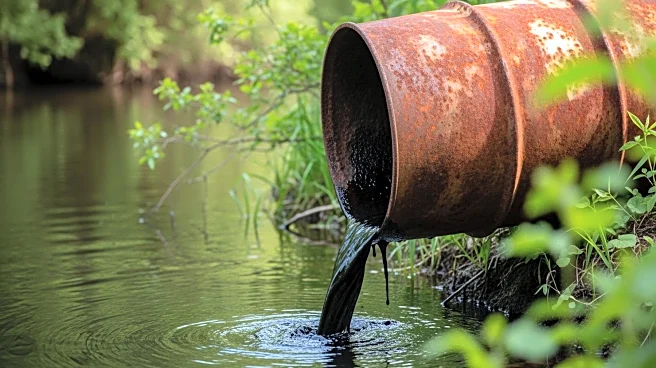What's Happening?
A study by the Stimson Center reveals that over 2,400 mines in Southeast Asia, many illegal and unregulated, are releasing toxic chemicals like cyanide and mercury into major rivers such as the Mekong. This contamination poses significant health risks
to over 70 million people who rely on these rivers for their livelihoods. The Thai government has responded by establishing task forces to monitor health impacts and secure alternative supplies for affected communities.
Why It's Important?
The contamination of Southeast Asia's rivers has far-reaching implications, affecting not only local populations but also global consumers of products from the region. The study highlights the urgent need for regulatory frameworks to manage mining activities and protect vital water resources. The situation underscores the environmental challenges faced by developing regions and the importance of international cooperation in addressing transboundary pollution issues.















